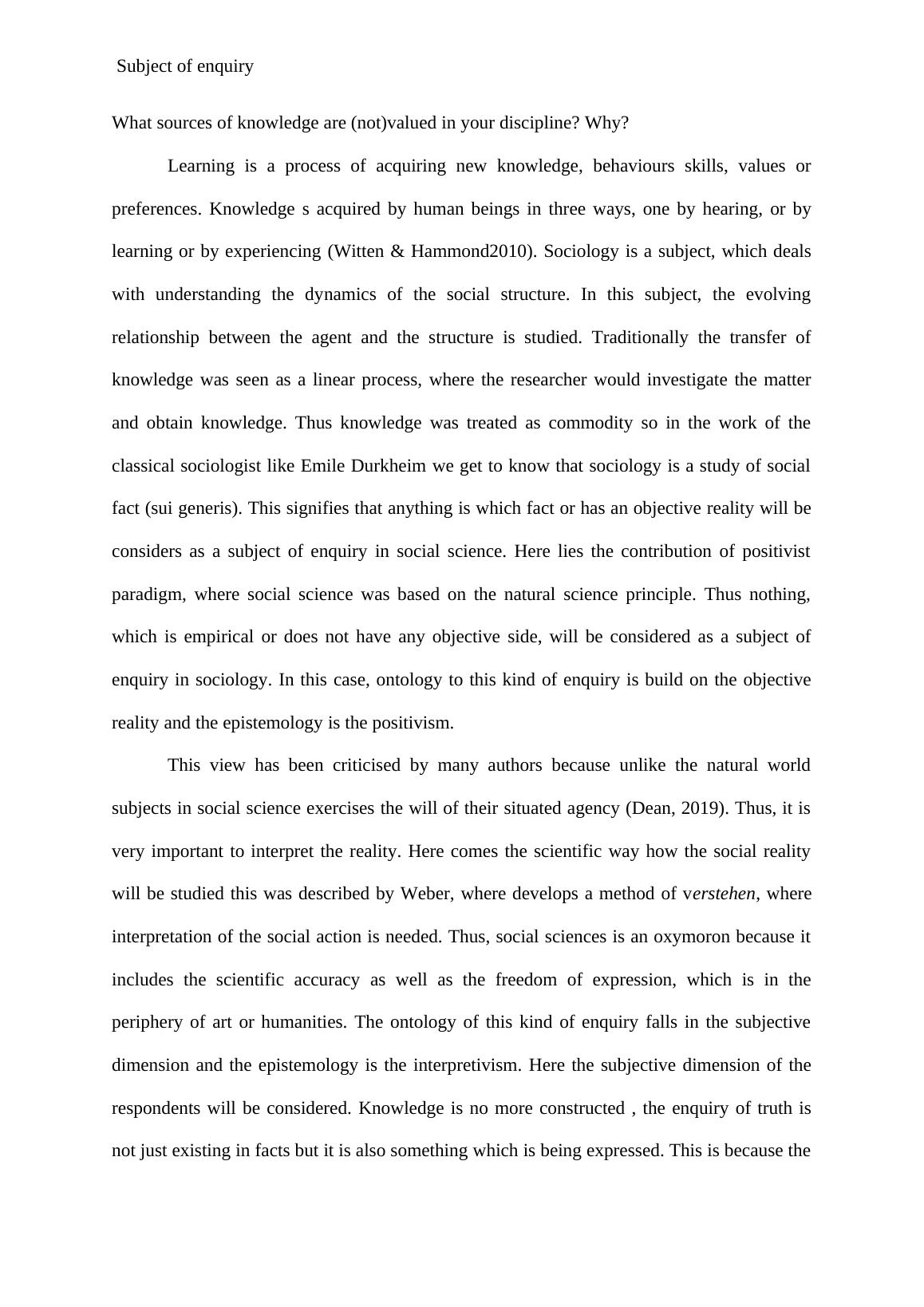Sources of Knowledge in Sociology
Meaning and perspective in the research process
4 Pages713 Words85 Views
Added on 2023-01-20
About This Document
This article explores the sources of knowledge valued in sociology and the reasons behind it. It discusses the importance of scientific enquiry and the debunking of common sense knowledge. The article also highlights the role of interpretivism in understanding social reality.
Sources of Knowledge in Sociology
Meaning and perspective in the research process
Added on 2023-01-20
ShareRelated Documents
End of preview
Want to access all the pages? Upload your documents or become a member.
Ontology for Humanity
|3
|357
|188
Learning and Construction of Knowledge
|6
|1750
|79
Research Philosophy: A Comparative Study
|5
|1300
|75
Understanding Social Policy: Problem Representation and Effects
|7
|1253
|351
Perspective on Social Research
|12
|3220
|88
The Role of Epistemology in Research 2022
|4
|1350
|23


